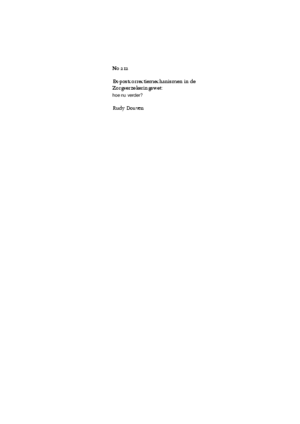Ex-post risk sharing mechanisms in the Dutch health insurance: where do we go from here?
Afbouw correcties achteraf voor zorgverzekeraars wenselijk
We are sorry, unfortunately there is no English translation of this page.
Contacts

The ex-ante risk adjustment system is not perfect. It may elicit risk selection activities by insurers or distort the playing field between health insurers. Therefore the Dutch government currently applies four ex-post risk sharing mechanisms: recalculation of the macro budget, a high cost compensation scheme, individual recalculation schemes and a bandwidth scheme.
The drawback of the four mechanisms is that they diminish the efficiency incentives of insurers. Of every additional euro spent on health, a small health insurer has to pay in 2010 on average 0.74 euro himself while 0.26 euro is paid by the government or other health insurers. For a large insurer, with a markets share of 30%, this is respectively 0.54 euro paid by the insurer himself and 0.46 euro paid by others.
A further improvement of the ex-ante risk adjustment system and a further reduction of the ex-post risk mechanisms could stimulate fair competition among health insurers and increase their efficiency incentives.
This publication is in Dutch.
Downloads
Authors

